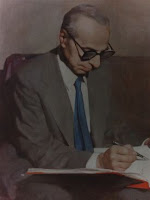Working Towards a New Pluralistic, Secular Society

“The connection of Islam to Arabism is not similar to that of any religion to any nationalism. The Arab Christians, when their nationalism is fully awakened and when they restore their genuine character, will recognize that Islam for them is nationalist education in which they have to be absorbed in order to understand and love it to the extent that they become concerned about Islam as about the most precious thing in their Arabism. If the actual reality is still far from this wish, the new generation of Arab Christians has a task which they should perform with daring and detachment, sacrificing for it their pride and benefits, for there is nothing that equals Arabism and the honor of belonging to it.”Michel Aflak, Arab Baath Party Founder, excerpt from his 1943 book “In memory of the Arab Prophet”
Attacks on Christians, churches in ashes, massive bombs that target Shiite holy places, a country in turmoil, this is what many will remember about Iraq. With the Collapse of the Baath regime in that country, the flood gates were opened, people began to reacquaint themselves with their confessional identities and rediscover ancient enmities. That is human nature. If the study of history shows us anything it shows us how destructive religious zealotry can be.
Few want to think about such horrors ever revisiting Lebanon, but if wishes were horses, beggars would ride. I always liked that saying; an instant image of horsemen in rags, riding between cars in Beirut traffic jams asking for handouts comes to mind. I do get these surrealist thoughts when I think of my country. It is undeniably a most surreal place.
The fact remains that in Lebanon nothing has changed; old enmities still linger and fester in the background. Although many Lebanese are reveling in the new found stability and prosperity that followed the formation of a government of national unity, now the hard work starts. This is the time to create those much sought after national institutions, to dismantle the decaying system of political favors and palm greasing and to begin tearing down the edifice of confessionalism brick by accursed brick.
We are either Lebanese or we are nothing. National identity has to be our primary identity. It is time we became fully Lebanese, equal under law, our rights fully intact, the right to vote as much as the right to run for public office, any office. The old ways of doing things clearly do not work very well in times of crisis. Under a confessional system any sect or minority can at any time feel disenfranchised or feel their privileges under threat.
Only a new social contract between free men and women, detached from tribal, filial and confessional loyalties can remove Lebanon from lingering under the shadow and threat of renewed civil strife. Otherwise, the peace we enjoy today will be but a brief lull in the fighting, much as the period from 1958 to 1975 was a lull. (Remember the present lull began just after the May 7 disturbances in 2008, so start counting!)
We have a tremendous responsibility as one of the most politically and democratically evolved Arab countries, to show the way for others to follow. Lebanon must once again lead the way in the Arab world, just as it did in modern literature, in banking, in ushering in the age of civil jet air transport. We must lead the way in institution building, in creating a truly pluralistic society where all citizens, regardless of gender or sect, have equal rights, duties and privileges under law, where the poorest among us are protected by a social safety net set up by taxing the wealthiest in society.
Fundamentalism finds fertile ground wherever there is poverty or disaffection. A pluralistic, modern and secular society is normally hostile to all forms of extremism. What Michel Aflak knew all too well and wished to avoid, is that if Arab Christians continued to view themselves as separate and distinct elements within what are essentially “Muslim” Arab States that it would foster a sense of disconnection with the socio-political fabric and lead to trouble further down the road.
His nationalist rhetoric not withstanding, I imagine Aflak to be a purist, an idealist struggling against the ugly reality of his world. He was also a product of the intense nationalist fervor that gripped urban Arab population centers in the early to middle part of the last century, of an anti-colonialist age. The Arab/Muslim landscape of today would, however, be as alien to him as the modern Christian Churches would be to Jesus Christ.
The task before us today is to learn from our past to change our future, to break the cycle that never fails to bring us back on the verge of disaster every time. Lebanon needs to become a blank canvas on to which the younger generations paint their hopes, dreams and ambitions for a freer and more pluralistic society.
"Despite being co-founder of the Ba'ath party, Michel Aflaq had little connection to the government that took power in Syria under that name in 1963. Eventually, the government and he had a falling out and he was forced to flee to Iraq where another Ba’ath Party had taken power. While this party also failed to follow most of ‘Aflaq's teachings, he became a symbol for the regime of Saddam Hussein according to whom Iraq was in fact the true Ba’athist country. In Iraq he was given a token position as head of the party and his objections to the regime were silenced and ignored." source: Wikipedia



Comments
Post a Comment